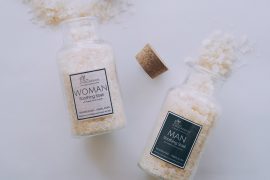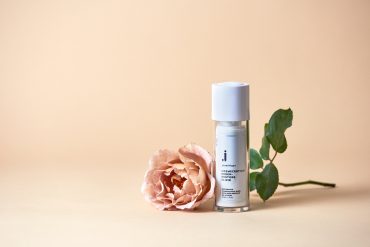Let biochemistry do its thing. Ignore those who say “put your baby down”. You belong together. Your instincts to comfort and hold your child have been around far longer than books and the internet.
Too often, society and its demands can interrupt this growing bond
The expectations of “getting your body back”, and the comments, “put that baby down!” “you’re going to spoil that baby!” “are you still feeding that baby?” add to the general anxiety around parenthood. It was never meant to be this hard, and such ideas go against the natural physiology of mothers and babies.
Much of the rise in perinatal mental health disorders comes from the loss of supportive communities, misunderstandings of normal baby behaviour (“your baby should be sleeping through the night by now”) and a focus on adult productivity for “growth of GDP” and early school readiness, etc rather than nurturing new relationships and focusing on creating a healthy society full of happy brains.
If we try and live in conflict with our biology we are going to run into problems.
So be confident and trust in your body and trust in your baby. You were made for each other. You are part of each other’s growth and healing.
The hard work of nurturing your child and caring for yourself is an investment well worth it.
What can we do to help? How can we help keep mothers and babies together so they can thrive?
Too often, it is very difficult to meet a baby’s needs to be held, when there are so many other demands on time and so many expectations around us. Babies can feel heavy as our bodies are often not used to lifting growing loads.
Babywearing can be one way of helping.
- It keeps a baby close, resting on their mother’s body comfortably, but allowing her to be hands-free.
- It spreads baby’s weight around, making them feel lighter and easier to carry.
- It encourages the close contact for both halves of the dyad, building bonds and reducing stress and anxiety.
- It helps babies to sleep (and yes they will learn to sleep in a bed too!).
- It often helps to reduce crying: due to the cuddle and the rocking motions, babies feel safe and secure and will calm down when taken for a walk. This can bring some relief to a very tired parent.
- It can help reduce the symptoms of reflux and wind and tummy discomfort, reducing crying and thus easing parental distress.
- Feeling able to calm and reassure her baby with a simple tool can help improve confidence and feelings of coping.
- Knowing her baby is safe and with her can help considerably with anxiety.
- It can be a great way to feed on the go, promoting baby-led parenting without trapping mothers on the sofa or at home.
- It can become a very therapeutic tool for a mother: to be able to carry her baby with her wherever she goes, doing whatever she needs to for her own health and wellbeing (eg walks, visiting friends, getting on the bus, cooking).
- Learning a new skill can help her brain feel active and engaged.
- Caring for sick or disabled children can be easier with a good baby carrier.
- Newborns can be kept safe and out of the way of toddlers or well-meaning family members who all want to hold the baby.
The sling itself doesn’t matter that much, as long as it is safe and comfy, and fits you and your baby well. Neither of you should be uncomfortable with it.
However, we know that many, many women find that wrapping with soft cloths in particular can give people a feeling of being “held together” and is very special.
People often describe wrapping as “magic!”
The act of wrapping and binding is in itself therapeutic; the feeling of the cloth massaging your back can help ease tired, stiff muscles and help relaxation, as if you were being hugged and cuddled yourself, reassuring and familiar. Babies often respond to the snugness of the cloth enveloping them, much as they were once enveloped and contained in utero, and will commonly relax and fall asleep with the sensation. The relief can be palpable, and then of course, the dopamine kicks in!
It is worth being aware that for some women, the sensory input of all this close contact can be overwhelming, especially if they are also breastfeeding. This is where early back carrying (with support from a trained professional) can be enormously useful.
People often become very attached to their wraps, as they become imbued with memories of the early months and years of their child’s life. The combination of biochemistry and a simple piece of cloth link us to other mothers all around the world and across generations: a timeless practice to help the mother-baby dyad to thrive.
What about fathers and other caregivers?
Yes, they matter too! Read more about why babywearing dads rock here.
Does the idea of babywearing appeal to you and you’d like to find out more?
Your local sling library can be found here. I highly recommend seeking their input and trying a few out, as a close and well fitting sling that works for your body and your baby can make a huge difference to your life. Slings that don’t fit or aren’t well designed just don’t have the same effects or benefits.
What other help do you need?
If you are struggling, do go and talk to your GP, HV, midwife, the local perinatal mental health teams, the many charities set up to support women who are experiencing mental health challenges, your family, your friends. Get some support so you can get enough rest, if you can. Try to eat well. Try to get out of the house. Try to spend time with the kind of people who “get” you (not everyone finds bright noisy baby groups helpful). Use online resources. Take a break, put your baby down if you need a rest (a few minutes of crying won’t lead to any lasting problems and may give you a breather.) Talk to people. You can do this.
Originally published here.
Rosie Knowles is a mum of two and a family doctor in the UK with a particular interest in holistic medicine as well as children and women’s health and mental health. She is a passionate advocate of building secure attachment relationships between children and their carers, due to the long lasting effects this has on future health. Her book, “Why Babywearing Matters“, was published by Pinter and Martin in May 2016 and she has written for a wide range of publications. She trains carrying advocates, peer supporters and health professionals. Visit her website Carrying Matters and follow her on Facebook, Instagram and Twitter.










